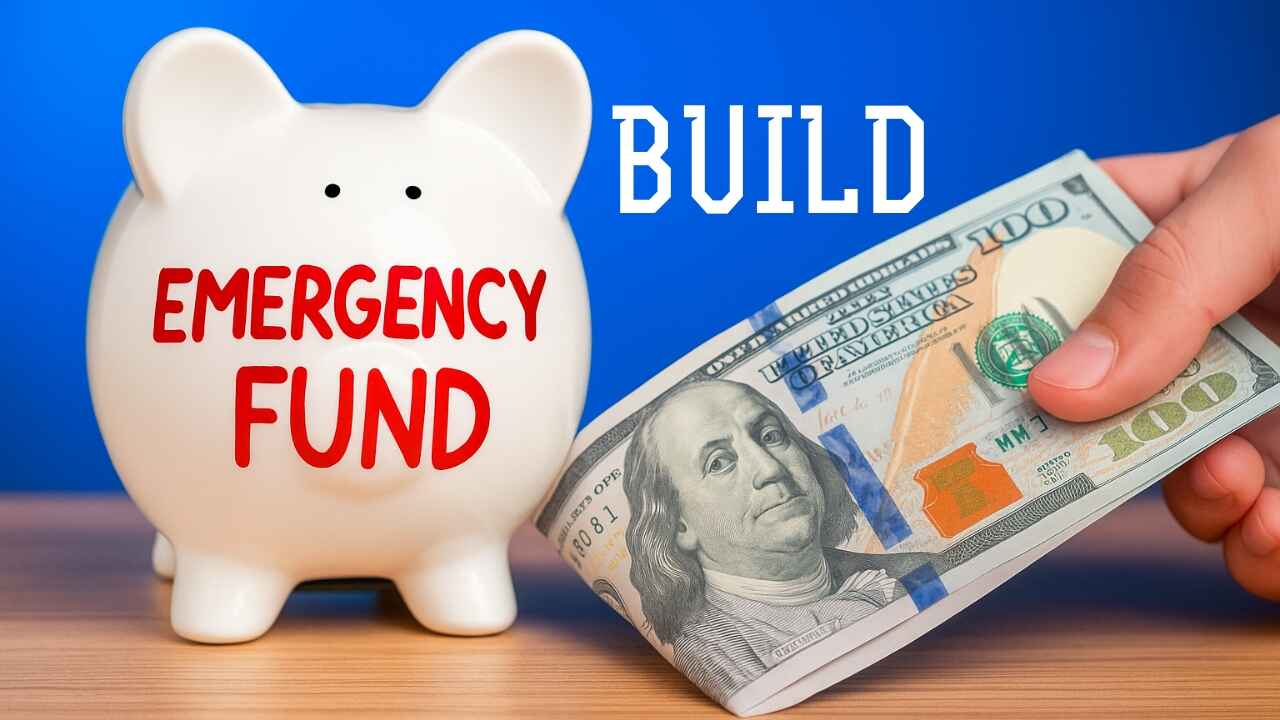What does “Build Emergency Fund” mean in business and finance?
In simple terms, Build Emergency Fund means keeping aside money that helps deal with sudden expenses or crises. You can think of it as your financial safety net. It is important not only for individuals but also for families and small businesses.
Today, this topic is in the news in the US due to economic uncertainty, inflation, rising interest rates, job cuts and geopolitical tensions. People are realizing how risky it can be to live on a monthly salary or run a business without backup. This is the reason why Build Emergency Fund is recommended first in today’s times.
Disclaimer:
This blog is for informational and educational purposes only. It does not constitute financial, investment, or legal advice. Readers are encouraged to consult with a qualified professional for personalized guidance. All views presented are neutral and based on publicly available information.
Table of Contents
Why is “Build Emergency Fund” so much in the news in America right now?
Here are 5 big reasons why Build Emergency Fund is trending in America:
- Rising inflation
The prices of essential commodities—such as ration, rent, gas and health services—have increased significantly. In such a situation, any unwanted expense like a car breakdown or a medical emergency can spoil everything. An emergency fund provides relief from this. - Job uncertainty
Due to layoffs in tech companies and closure of retail shops, many people are feeling insecure about employment. In such a situation, Build Emergency Fund proves to be helpful if you lose your job. - Rise in interest rates
Credit card debt has become very expensive. In such a situation, if you do not have savings, you can get trapped in debt. The way to avoid this trap is to prepare Build Emergency Fund in time. - Bank failure and market fluctuations
The failure of banks like Silicon Valley Bank shocked people. This made us realise that it is important to create a Build Emergency Fund and keep it safe and separate. - Natural disasters and global events
Events like storms, fires, epidemics or wars affect both business and jobs. Therefore, now it is necessary that we be prepared in advance and create a Build Emergency Fund.
For individuals (Personal Finance)
1 What is it?
A cash reserve kept in a separate bank account for emergencies only—such as a High Yield Savings Account (HYSA).
2 How much money do you need?
It is generally recommended to save 3 to 6 months’ worth of expenses:
Rent or loan instalments
Utility bills
Food expenses
Insurance premiums
Minimum loan payments
If your monthly expenses are ₹60,000, target ₹1.8 lakh to ₹3.6 lakh to build an emergency fund.
3 What is an emergency:
Loss of job
Sudden medical expenses
Car or home repairs
Funeral expenses
Legal trouble
A new iPhone, trip or shopping are not considered emergencies.
- Where to keep it?
Keep it in a High Yield Savings Account (HYSA)
FDIC-safe
Good interest
Quick access
What if you don’t have an emergency fund?
If you are an individual or running a business and you have not built an emergency fund, you may face difficulties.
For individuals:
- Credit card limit will be touched
- Loan or rent may be delayed
- It will be difficult to take decisions under financial stress
For businesses:
- You will have to take a loan immediately
- You may have to cut staff
- Brand reputation may be damaged
Why do people avoid an emergency fund?
Most people know that it is important to build an emergency fund, but they don’t build one because of:
- Short-term thinking
- Being cash-strapped every month
- Overconfidence
- Lack of information
- Habit of spending instead of saving
But the truth is Building an emergency fund is not for fear, but for freedom.
How to build an emergency fund quickly?
Here are 10 ways to build an emergency fund quickly:
- Start with a mini fund of $1000
- Set up auto transfers
- Open a separate HYSA account
- Use bonuses, refunds, gifts
- Cut subscriptions
- Sell unwanted items
- Take up a side gig
- Reduce rent by getting a roommate
- Stop unnecessary shopping
- Motivate yourself after each step
Emergency Fund vs Investment
People ask:
“Why not invest better than keeping it at low interest?”
First build emergency fund, then invest.
- Investment involves risk
- Emergency fund is stable and quickly usable
Final Thoughts: Self-Reliance and Mental Peace
When you build an emergency fund, you take the power to control situations.
Whether you are a student, professional, freelancer or business owner the decision to build an emergency fund is the first step towards your financial freedom.
- Peaceful sleep even under stress
- Confidence in career decisions
- Distance from debt
- A safety net for a stable life
Summary in one line:
Build an emergency fund not because trouble will come but so that you can handle yourself even in trouble.
Also read our new blog which is Robinhood: Invest Smart with $100

